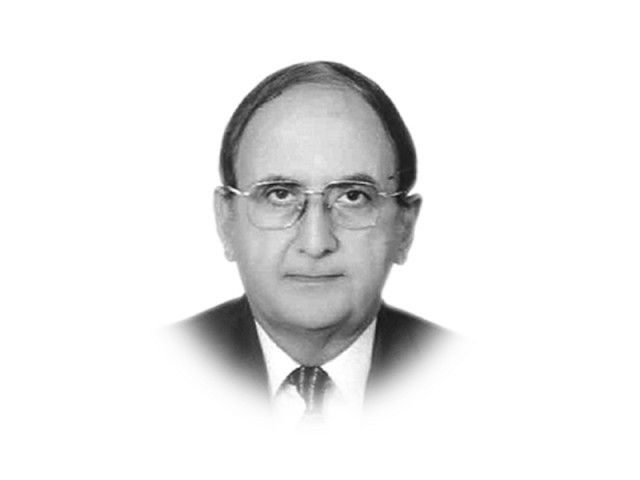Turkish episode doesn’t apply to Pakistan
Not many people in Pakistan paid attention to the history and dynamics of civil-military relations in Turkey

The writer is an independent political and defence analyst. He is also the author of several books, monographs and articles on Pakistan and South Asian affairs
Not many people in Pakistan paid attention to the history and dynamics of civil-military relations in Turkey, which makes that country different from Pakistan in several respects. Similarly, no one talked about the challenges to Turkish democracy despite the failure of the coup and how President Erdogan was using emergency powers in the aftermath of the coup to cleanse the military, civilian institutions and lower judiciary of his political adversaries and pack these institutions with loyalists. The current tensions in civil-military relations in Turkey are expected to persist and these might lead to fresh upheavals in politics. The Turkish government plans to purge the military of the Gulenist elements and some of its top commanders are going to be put on trial at a time when military cohesion and morale are needed to cope with Kurd separatists and IS extremists.
Pakistani enthusiasm for the beleaguered Turkish government can be better understood in the context of the uncertain civil-military relations in Pakistan. The PML-N and its allies have played up the Turkish episode in order to deter Pakistan’s security establishment from expanding its role in the political domain. The ruling party is hoping that the threat of popular resistance would contain the role of the military and ensure civilian continuity in Pakistan.
The single variable explanation of the failure of the military coup in Turkey is misleading. The response of the people to the appeal for help by President Erdogan was an important contributory factor, but this was not the key element in the civilian triumph. The initiator of rebellious coup violated the standard operating procedure for staging a coup. First, if a coup is not spearheaded by the top command of a professional military, it is likely to collapse. In this case, the rebellious elements have to fight on two fronts: their colleagues who refuse to join them and the political leadership that needs to be dislodged. This divides the military and dissipates their energy for swift action. Second, it is important for the military staging a coup to establish quick control over key government offices, disarm its security system and take over the official communication system. A divided military will always find it difficult to establish a stable control of state institutions and networks. Third, the top leadership to be dislodged needs to be quickly isolated from their loyalists and supporters so that they do not mobilise them. The key leaders of the target regime are either arrested or detained in their residences in a manner that they are isolated from the outside world.
The rebellious Turkish military failed on all three counts. The military as a whole was not united and it was unable to control key government installations in Ankara and Istanbul. It did not know that President Erdogan was not in Ankara that night. By the time it came to know of his location, he was able to issue an appeal to the people and moved to Istanbul which was his main support base as had served as mayor of Istanbul in the past. As the people realised that the president and the prime minister were free to function, the public responded positively to the appeal. It took almost three hours from the first information about the beginning of the coup for the public to take to the streets in large numbers. Had the rebellious military succeeded in following the first three standard operating procedures, the appeal to the people — which actually led to the failure of the already-faltering coup — could not have been made. The popular response to President Erdogan’s appeal in Turkey can be attributed to the government’s successful economic and social development policies since the Justice and Development Party came to power in 2002. The Turkish government was able to improve the delivery of basic services to the people and this created a widely shared perception at the grassroots level that the people’s quality of life had improved under this government.
The Turkish public reciprocated the good work done by Erdogan as prime minister (2003-14) by responding positively to his appeal. In the case of Pakistan, however, it is difficult to say whether the civilian federal and provincial governments have adequately addressed the socioeconomic problems of the poor or improved the quality of life of ordinary people in the country. The current political order has entrenched itself in Pakistan by tolerating corruption and has relied on the partisan use of state patronage to build support. Therefore, the direct beneficiaries of state patronage and those who have made money one way or another under the current civilian order are expected to support such a corrupt and lopsided system in Punjab. However, the probability is extremely low that there would be a spontaneous display of popular support in the major cities if the civilian order is threatened by non-democratic pressures. The civilian order in Pakistan can be secured by ensuring corruption-controlled governance and political accommodation with the opposition. This needs to be coupled with managing irritants in civil-military relations, such as the extension of the powers of the Rangers in Sindh, security and foreign policy priorities, civilian aspects of countering terrorism and relations with India and Afghanistan. Consensus-building on these issues can strengthen trust between civil and military authorities and this holds the key to political stability in Pakistan.
Published in The Express Tribune, July 25th, 2016.
Like Opinion & Editorial on Facebook, follow @ETOpEd on Twitter to receive all updates on all our daily pieces.
















COMMENTS
Comments are moderated and generally will be posted if they are on-topic and not abusive.
For more information, please see our Comments FAQ